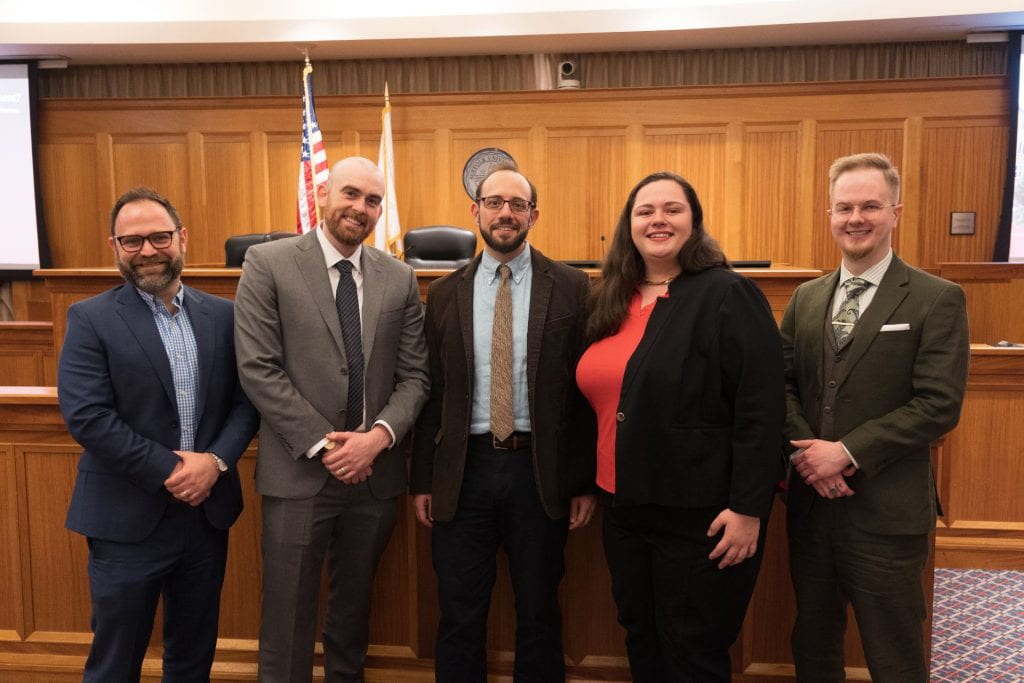Can the Police Patrol My Basement? Standing and Expectations in Multifamily Homes
The Suffolk University Law Review welcomed Attorney Patrick Levin as the featured speaker for the 131st Donahue Lecture. Attorney Levin is an Appellate Staff Attorney with the Public Defender Division of the Massachusetts Committee for Public Counsel Services and has spent his career protecting criminal defendants’ constitutional rights against governmental intrusions on privacy. Attorney Levin discussed the Fourth Amendment problems surrounding police searches of multifamily homes in Massachusetts.
Attorney Levin addressed the peculiar problem that Massachusetts courts do not consider searches of the basements of multifamily homes searches at all. He traced the history of search and seizure jurisprudence leading to this interpretation, discussing how Massachusetts courts have determined that residents of multifamily homes cannot expect privacy in shared areas that are accessible to landlords, tenants, and the public. Attorney Levin argued that this approach creates a dissonance in the law, equating a resident’s basement with a public space like Boston’s City Hall Plaza. He emphasized that the home deserves special protection under the Fourth Amendment as the center of private life. Attorney Levin then delved into issues of standing and the conflation of the reasonable expectation of privacy test with the search and standing elements of possession analysis, expressing concern over the confusion that the Supreme Judicial Court has caused in lower courts.
These issues have a disparate impact on marginalized communities living in multifamily homes, particularly poorer, Black, and Hispanic individuals. Attorney Levin emphasized that the inequitable distribution of Fourth Amendment rights based on race and income raises an equal protection issue. He also pointed out the connection to historical exclusionary zoning and discriminatory clauses in leases that aimed to keep minorities out of single-family suburbs.
Attorney Levin concluded by proposing a bright line rule that aligns with the Massachusetts Declaration of Rights: If the police intrude on someone’s home in a manner that would not be allowed by the general public, then it should be considered a search of the home requiring a warrant. This rule would protect equal sanctity and security in the homes of all individuals, regardless of their socioeconomic status or race.
Recording:
Watch the full lecture [here].
Photos:




